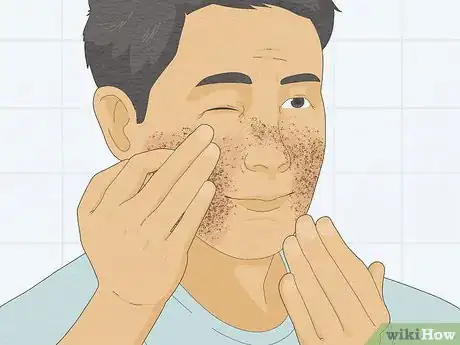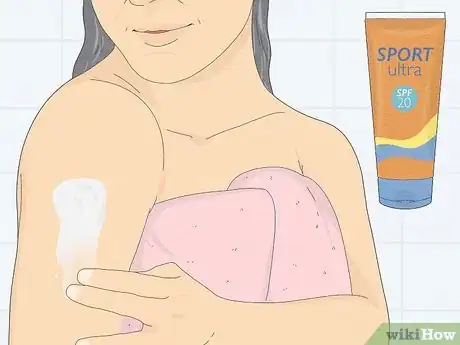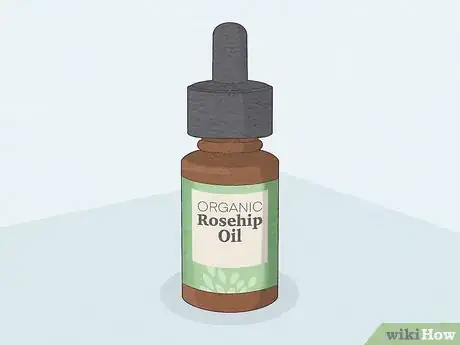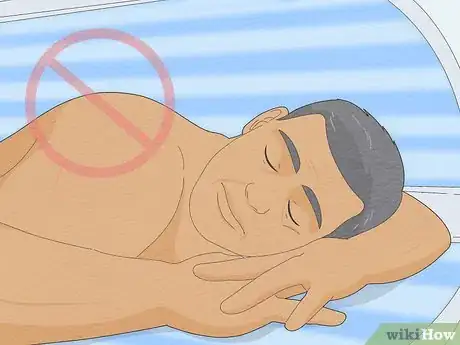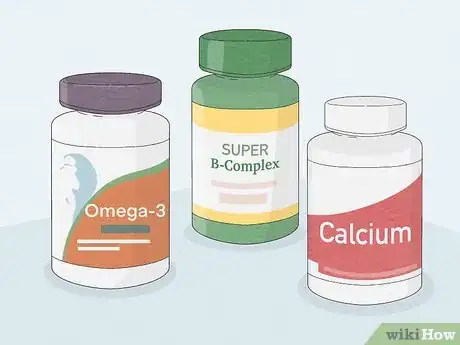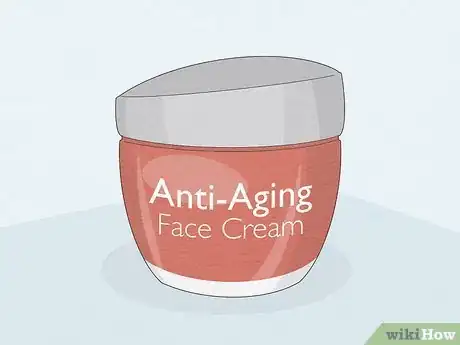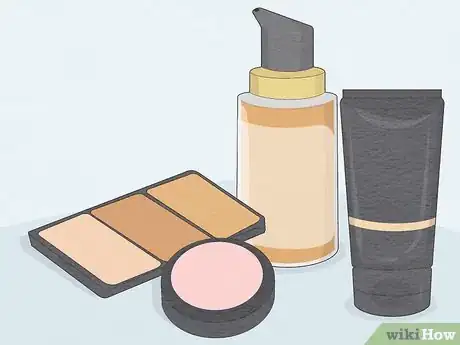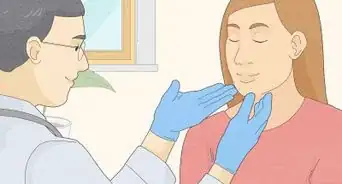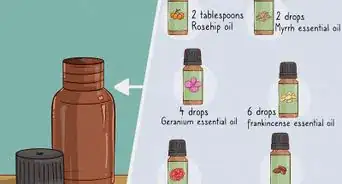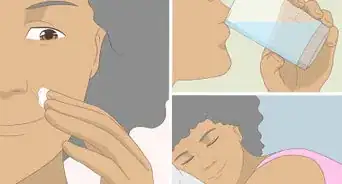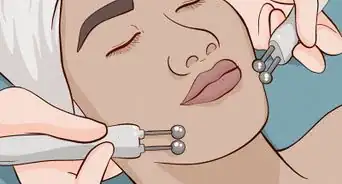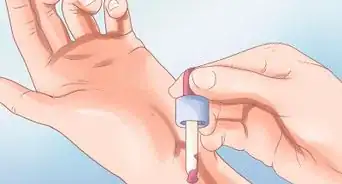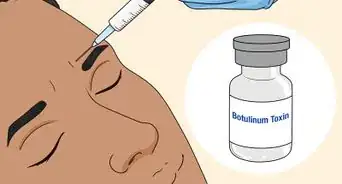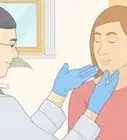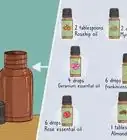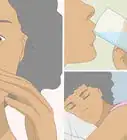This article was co-authored by Navid Malakouti, MD, FAAD. Dr. Navid Malakouti is a Board Certified Dermatologist specializing in cosmetic dermatology, dermatologic surgery, and medical dermatology. He treats patients of all ages for conditions like acne, rosacea, psoriasis, skin cancer, botox, fillers, lasers, and chemical peel. Dr. Malakouti is a Diplomate of the American Board of Dermatology, Fellow of American Academy of Dermatology, American Society for Dermatologic Surgery, and American Society for Laser Medicine and Surgery, and a member of the Skin of Color Society. He holds a BS in Biochemistry and Cell Biology from The University of California, San Diego and an MD from The Virginia Commonwealth University School of Medicine. He completed his Dermatology residency in Washington D.C. at Howard University, VA Medical Center, Children's National Hospital, and the National Institutes of Health.
There are 10 references cited in this article, which can be found at the bottom of the page.
This article has been viewed 106,930 times.
Aging is a serious and continuous process that is unfortunately affecting us all. Here are some simple but effective steps to take on your way to beautiful, healthy skin even while 'coming of age'.
Steps
Expert Q&A
-
QuestionHow can I take care of my skin naturally?
 Navid Malakouti, MD, FAADDr. Navid Malakouti is a Board Certified Dermatologist specializing in cosmetic dermatology, dermatologic surgery, and medical dermatology. He treats patients of all ages for conditions like acne, rosacea, psoriasis, skin cancer, botox, fillers, lasers, and chemical peel. Dr. Malakouti is a Diplomate of the American Board of Dermatology, Fellow of American Academy of Dermatology, American Society for Dermatologic Surgery, and American Society for Laser Medicine and Surgery, and a member of the Skin of Color Society. He holds a BS in Biochemistry and Cell Biology from The University of California, San Diego and an MD from The Virginia Commonwealth University School of Medicine. He completed his Dermatology residency in Washington D.C. at Howard University, VA Medical Center, Children's National Hospital, and the National Institutes of Health.
Navid Malakouti, MD, FAADDr. Navid Malakouti is a Board Certified Dermatologist specializing in cosmetic dermatology, dermatologic surgery, and medical dermatology. He treats patients of all ages for conditions like acne, rosacea, psoriasis, skin cancer, botox, fillers, lasers, and chemical peel. Dr. Malakouti is a Diplomate of the American Board of Dermatology, Fellow of American Academy of Dermatology, American Society for Dermatologic Surgery, and American Society for Laser Medicine and Surgery, and a member of the Skin of Color Society. He holds a BS in Biochemistry and Cell Biology from The University of California, San Diego and an MD from The Virginia Commonwealth University School of Medicine. He completed his Dermatology residency in Washington D.C. at Howard University, VA Medical Center, Children's National Hospital, and the National Institutes of Health.
Board Certified Dermatologist The two most important factors in your control to have healthy skin is not smoking tobacco and avoiding excessive sun exposure.
The two most important factors in your control to have healthy skin is not smoking tobacco and avoiding excessive sun exposure. -
QuestionDoes skin become more dry with age?
 Navid Malakouti, MD, FAADDr. Navid Malakouti is a Board Certified Dermatologist specializing in cosmetic dermatology, dermatologic surgery, and medical dermatology. He treats patients of all ages for conditions like acne, rosacea, psoriasis, skin cancer, botox, fillers, lasers, and chemical peel. Dr. Malakouti is a Diplomate of the American Board of Dermatology, Fellow of American Academy of Dermatology, American Society for Dermatologic Surgery, and American Society for Laser Medicine and Surgery, and a member of the Skin of Color Society. He holds a BS in Biochemistry and Cell Biology from The University of California, San Diego and an MD from The Virginia Commonwealth University School of Medicine. He completed his Dermatology residency in Washington D.C. at Howard University, VA Medical Center, Children's National Hospital, and the National Institutes of Health.
Navid Malakouti, MD, FAADDr. Navid Malakouti is a Board Certified Dermatologist specializing in cosmetic dermatology, dermatologic surgery, and medical dermatology. He treats patients of all ages for conditions like acne, rosacea, psoriasis, skin cancer, botox, fillers, lasers, and chemical peel. Dr. Malakouti is a Diplomate of the American Board of Dermatology, Fellow of American Academy of Dermatology, American Society for Dermatologic Surgery, and American Society for Laser Medicine and Surgery, and a member of the Skin of Color Society. He holds a BS in Biochemistry and Cell Biology from The University of California, San Diego and an MD from The Virginia Commonwealth University School of Medicine. He completed his Dermatology residency in Washington D.C. at Howard University, VA Medical Center, Children's National Hospital, and the National Institutes of Health.
Board Certified Dermatologist Yes, aging does promote dryness, but there are other factors involved in the skin’s moisture content, such as genetics, climate, and humidity.
Yes, aging does promote dryness, but there are other factors involved in the skin’s moisture content, such as genetics, climate, and humidity.
Warnings
- If you are suffering from hormonal acne, hormonal imbalance or any other condition for that matter do discuss with your physician about any changes in nutrition, daily habits or cosmetics use before attempting to switch your current routine.⧼thumbs_response⧽
References
- ↑ https://www.aad.org/skin-care-secrets/safely-exfoliate-at-home
- ↑ Navid Malakouti, MD, FAAD. Board Certified Dermatologist. Expert Interview. 19 July 2021.
- ↑ https://www.webmd.com/children/sunscreen-use-correctly
- ↑ Navid Malakouti, MD, FAAD. Board Certified Dermatologist. Expert Interview. 19 July 2021.
- ↑ https://www.huffpost.com/entry/face-oils_b_1747283
- ↑ https://www.nia.nih.gov/health/skin-care-and-aging
- ↑ https://www.mayoclinic.org/healthy-lifestyle/adult-health/expert-answers/hydrated-skin/faq-20058067
- ↑ https://www.webmd.com/beauty/features/abcs-of-healthy-skin-diet
- ↑ https://www.webmd.com/beauty/nutrients-for-healthy-skin#1
- ↑ https://www.mayoclinic.org/diseases-conditions/common-cold/in-depth/humidifiers/art-20048021
- ↑ https://www.health.harvard.edu/staying-healthy/how-to-moisturize-your-skin
- ↑ Navid Malakouti, MD, FAAD. Board Certified Dermatologist. Expert Interview. 19 July 2021.
